Best Entry-Level Mining Jobs in Australia (and How to Get Hired)

Key Takeaways
- Mining demand is growing: Over 24,000 new workers will be needed by 2030 due to new projects, automation, and ongoing labour shortages. (Source: Minerals Council of Australia)
- Entry-level roles are more accessible than ever: Jobs like nippers, drillers’ offsiders, camp housekeepers, and conveyor belt trainees rely on attitude, reliability, and communication more than experience.
- Get job-ready with core tickets: White Card, Provide First Aid, Manual Handling, and other National Courses certifications make you eligible for multiple mining roles.
- Transferable skills matter: Experience in retail, construction, cleaning, transport, hospitality, or warehousing can help you step into mining quickly.
- Career progression is real: Many entry-level employees move into supervisory, technical, or trade roles with on-the-job training and additional tickets.
How to Get Started in the Australian Mining Industry

Mining is one of Australia’s best-paid and most in-demand industries — and right now, it’s also one of the most accessible.
A nationwide labour shortage means mine operators are looking beyond experience. Today, attitude, teamwork, and safety awareness often matter more than your CV — and these are skills most people already have.
The Australian Resources & Energy Employer Association predicts the sector will need over 24,000 new workers by 2030 to meet demand from new projects and automation expansions.
This is opening doors for people from retail, construction, cleaning, transport, and hospitality to step into entry-level mining roles — often with training provided and salaries above the national average.
Entry-level roles today include camp housekeepers, nippers, drillers’ offsiders, and conveyor belt trainees — jobs that value reliability, communication, and a willingness to learn.
If you’ve got a strong work ethic, you're already halfway there.
Why Mining Is More Accessible Than Ever
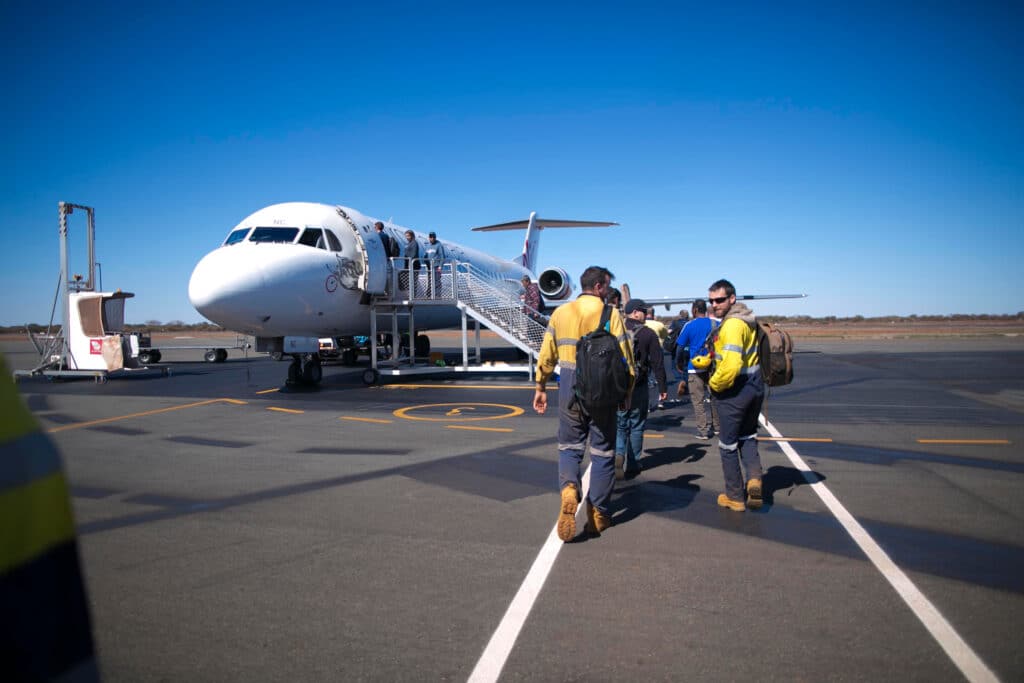
The mining industry isn’t what it used to be.
Automation, renewables, and workforce shortages are reshaping what entry-level looks like — and opening doors to everyday Australians who might never have considered mining before.
1. Fewer Barriers to Entry
Most entry-level jobs now focus on safety, attitude, and teamwork — not experience.
Many companies even provide paid on-site training or traineeships, meaning you can learn while you earn.
All you usually need to start is:
- A manual driver’s licence
- A White Card
- Basic First Aid or safety training
- The right attitude to work hard and follow procedures
2. Growing Demand for Workers
Companies are struggling to fill rosters, especially for FIFO and site-based roles — so they’re hiring people from all walks of life and offering training, housing, and stable rosters like 7/7 or 14/14.
3. Broader Range of Roles
The rise of new technology and sustainability goals means mining now employs everyone from drone assistants and supply trainees to camp housekeepers and environmental field techs.
Many of these jobs combine physical work with communication, problem-solving, and safety — skills that transfer easily from retail, hospitality, or construction.
Trainer’s Insight:
“We’re seeing more people move into mining with no trade background at all — people who’ve worked in cafés, transport, or maintenance. Once they complete their core tickets, they’re job-ready in a matter of weeks.”
Best Entry Level Mining Jobs in Australia
1. Nipper (Underground Mine Assistant)
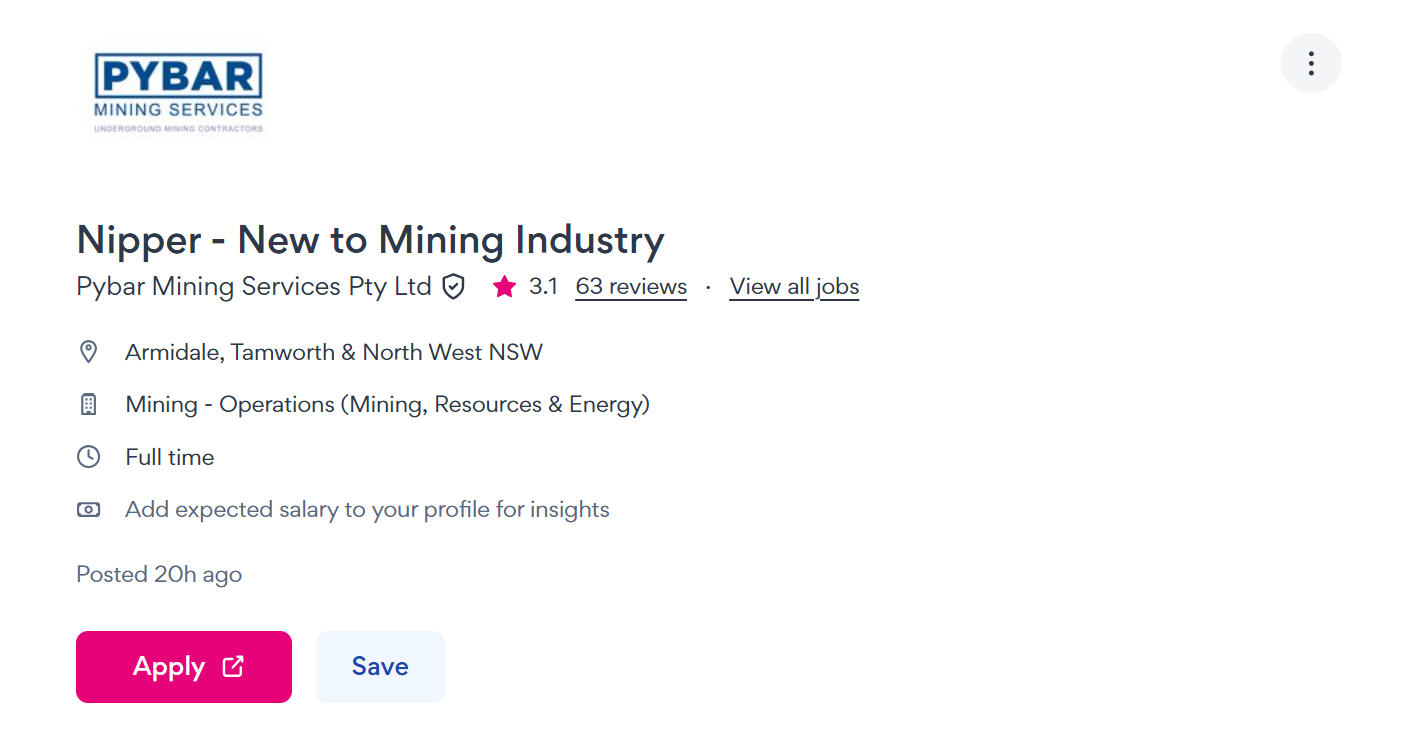
What the job is
A Nipper is the core support role on underground crews — the person who keeps the work area ready, moves gear, assists trades and operators, and helps maintain a safe, efficient workplace. It’s physical, team-focused, and the most common entry point into underground mining.
Day-to-day tasks
- Carrying and staging materials and tools for crews
- Moving rock, timber, and small equipment to and from the face
- Cleaning and securing work areas; ensuring clear egress routes
- Helping set up basic infrastructure (lights, barricades) and assisting tradespeople
- Following direction from supervisors and reporting hazards
Real requirements (what employers actually check)
- Valid C-class (manual) driver’s licence — usually essential
- Ability to pass site medical, drug & alcohol testing, and police or NPC checks
- Good physical fitness and ability to work in confined, dusty, noisy environments
- Positive, team-first attitude and strong attention to instructions
- Working at Heights and other site tickets are a plus but not always required
Where your past experience fits
| Previous Experience | Why It Transfers |
|---|---|
| Construction labourer / tradie assistant | Familiar with site routines, tools and physical work |
| Warehouse / logistics | Safe material handling and shift work experience |
| Hospitality / retail | Teamwork, long shifts and reliability translate to crew focus |
| No experience | Employers often hire for attitude and train on the job |
Recommended, job-ready tickets / short courses
- White Card (CPCWHS1001)
- Provide First Aid (HLTAID011)
- Manual Handling
- Working at Heights (beneficial for progression)
Pay & roster (realistic expectation)
Common rosters include residential or FIFO patterns such as 14:14. Starting entry underground roles typically sit in the $80,000–$100,000 band depending on roster and allowances.
How to apply / stand out
- Show completed core tickets (White Card, First Aid) on your resume
- Emphasise reliability, physical fitness and any site-related experience
- Be ready to accept short-term contracts or labour-hire placements as a route in
Trainer’s Insight
“Nipper roles are about attitude and safety. If you show a willingness to learn and arrive with basic tickets, companies will teach you the rest — that’s how careers start.”
2. Driller’s Offsider (Surface & Underground)
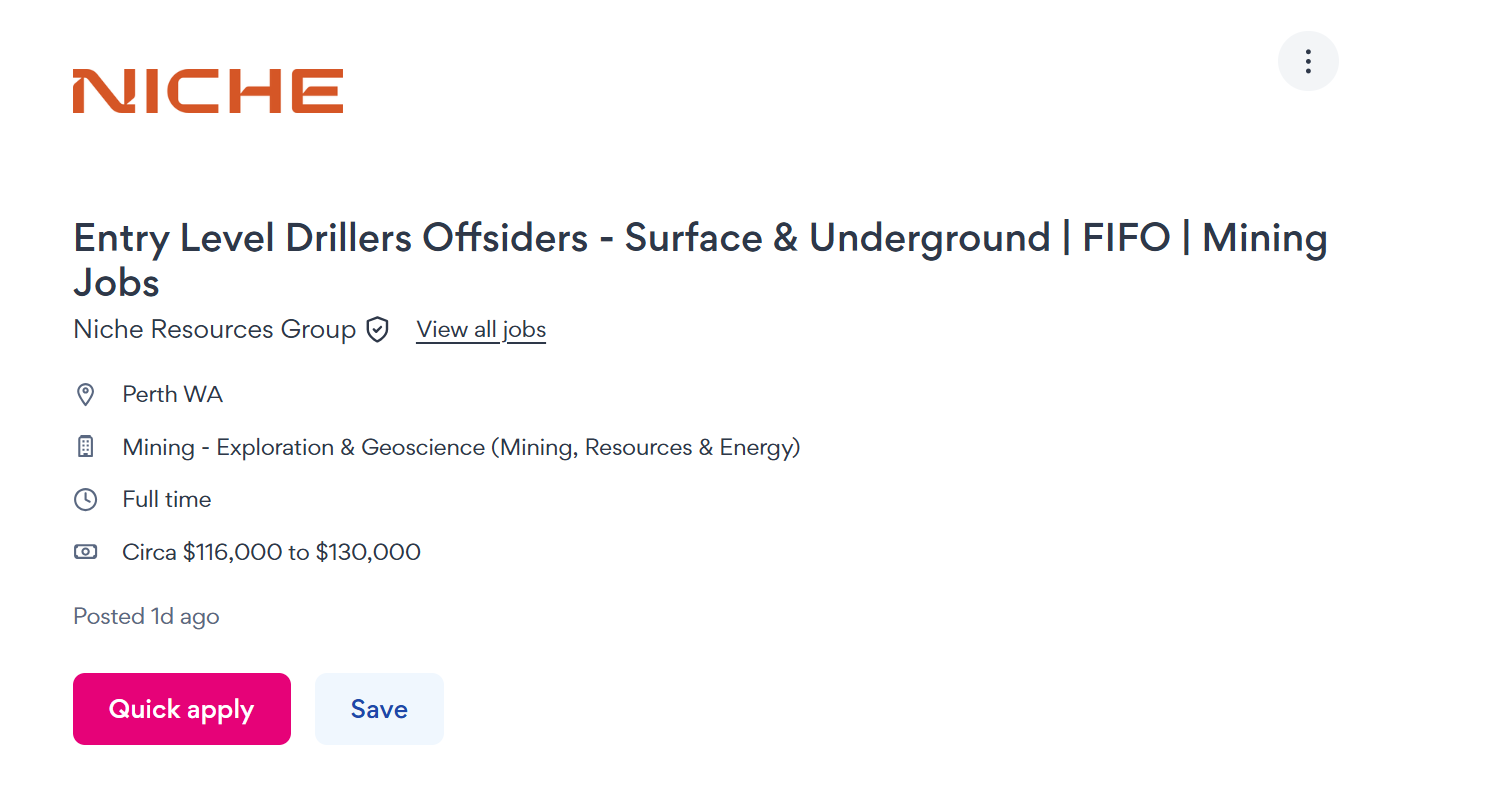
What the job is
A Driller’s Offsider is the driller’s right-hand person on exploration and production rigs. It’s physically demanding but one of the fastest routes to a well-paid drilling career.
Employers often offer paid traineeships that progress offsiders into qualified drillers.
Day-to-day tasks
- Assisting at the drill rig: moving rods, monitoring drill fluids, recovering samples
- Handling heavy lifting around the rig and keeping the area safe and tidy
- Setting up sample bags, marking samples and basic logging tasks
- Supporting maintenance and basic troubleshooting under supervision
Real requirements
- C-class manual licence and willingness to relocate (WA often preferred)
- Fit, physically robust, and able to work outdoors in heat, dust and noise
- Clean police check; Australian work rights usually required
- Willingness to undertake a multi-year traineeship (often paid)
Where your past experience fits
| Previous Experience | Why It Transfers |
|---|---|
| Farming / heavy labour | Used to long physical days, machinery and remote work |
| Construction assistant | Experience with tools and following safety direction |
| Warehouse / logistics | Routine physical tasks and safety compliance |
| No experience | Many offsiders start with zero mining experience under traineeships |
Recommended tickets & courses
- White Card
- Provide First Aid
- 4WD Training (helpful for exploration rigs)
- Confined Space / Working at Heights (useful for progression)
Pay & roster
Paid traineeships are often advertised around $116,000–$130,000 for drill offsider-trainee pathways; with experience and qualification you can progress well beyond that (>$180k possible). Rosters vary (2:1, 3:1, 4:2 common).
How to apply / stand out
- Target companies running traineeship programs or “green” entry pathways
- Highlight heavy-lifting, machinery or remote work experience
- Be clear about relocation plans — WA roles often prioritise locals or movers
Trainer’s Insight
“Driller’s offsider is tough work, but the upside is fast career progression and paid training. Employers like applicants who are fit, practical, and committed.”
3. Trainee Blast Crew Operator
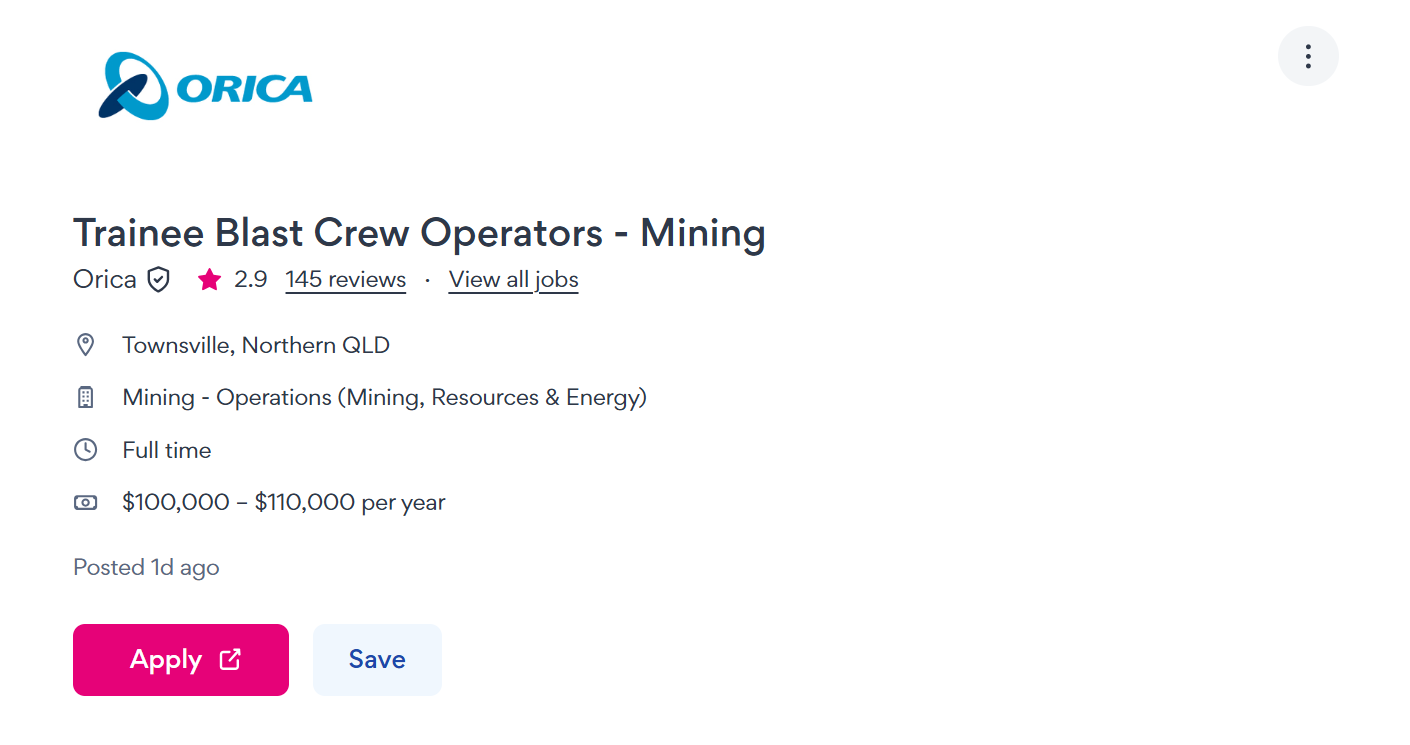
What the job is
Trainee blast crew operators support blasting teams, learn explosives handling, and may progress to operate specialised charging and manufacturing units. Safety and attention to procedure are paramount.
Day-to-day tasks
- Assisting in preparing blast sites and delivering explosive materials safely
- Supporting loading/charging operations under supervision
- Maintaining equipment and accurate records
- Performing rigorous safety checks and following strict procedures
Real requirements
- Strong teamwork and attention-to-detail
- National police clearance often required
- HR licence an advantage (not always essential)
- Willingness to be trained in explosives protocols and undergo ongoing competency checks
Where your past experience fits
| Previous Experience | Why It Transfers |
|---|---|
| Construction trades or offsiding | Used to safety processes and heavy tools |
| Warehousing / logistics | Inventory control and handling procedures translate to explosives logistics |
| Manufacturing / workshops | Accustomed to SOPs and precise processes |
| No experience | Employers take trainees who demonstrate discipline and safety focus |
Recommended tickets & courses
- White Card
- Provide First Aid
- Manual Handling
- Employer-provided explosives training (on the job)
Pay & roster
Trainee blast roles typically start around $100,000–$110,000 with structured progression and benefits. Rosters vary between residential and FIFO options.
How to apply / stand out
- Emphasise reliability, safety orientation and any SOP-driven experience
- Be ready for police checks and staged training assessments
- Show willingness to follow strict procedures and ongoing competency checks
Trainer’s Insight
“Blasting is a high-trust area — employers train well, but they want people who follow instruction and treat safety as non-negotiable.”
4. Conveyor Belt Splicing Trainee
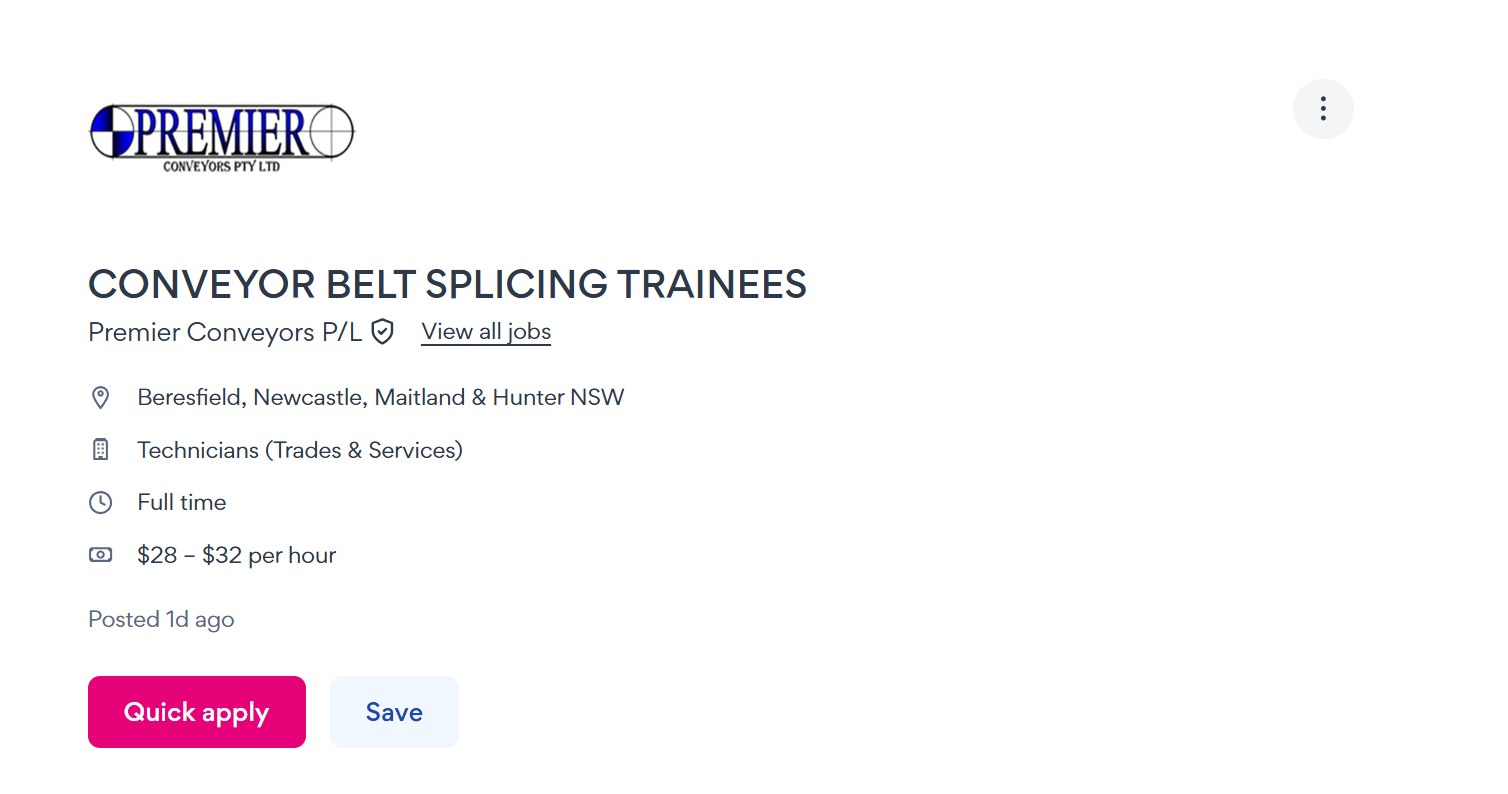
What the job is
Conveyor belt splicers install, splice, repair and maintain conveyor systems used across mining sites. It’s a specialist trade with apprenticeship-style pathways and consistent demand.
Day-to-day tasks
- Inspecting conveyor systems and identifying faults
- Assisting with on-site splicing, installation and repair work
- Workshop tasks: preparing splices and cutting belts
- Performing safety checks and supporting preventative maintenance
Real requirements
- White Card and driver’s licence commonly required
- Comfortable with workshop and fieldwork, lifting and standing for long periods
- Teamwork and willingness to learn technical processes
Where your past experience fits
| Previous Experience | Why It Transfers |
|---|---|
| Workshop / mechanical assistant | Familiarity with tools and maintenance tasks |
| Construction / trade support | Site safety experience and working with teams |
| General labour / manufacturing | Manual dexterity and routine maintenance skills |
| No experience | Traineeships and Cert III pathways available for beginners |
Recommended tickets & courses
- White Card
- Provide First Aid
- Working at Heights (sometimes required)
- Certificate III in Polymer Processing (employer-supported for trade progression)
Pay & roster
Trainee rates are often around $28–$32 per hour. As you qualify, experienced splicers earn significantly more. Work is scheduled to site needs and may include overtime.
How to apply / stand out
- Apply to formal traineeship openings and highlight any workshop experience
- Demonstrate mechanical aptitude and commitment to complete trade qualifications
Trainer’s Insight
“Conveyor splicing is a niche trade with great security. If you like practical work and learning a specialised skill, this is a steady route into mining trades.”
5. Underground Truck Operator
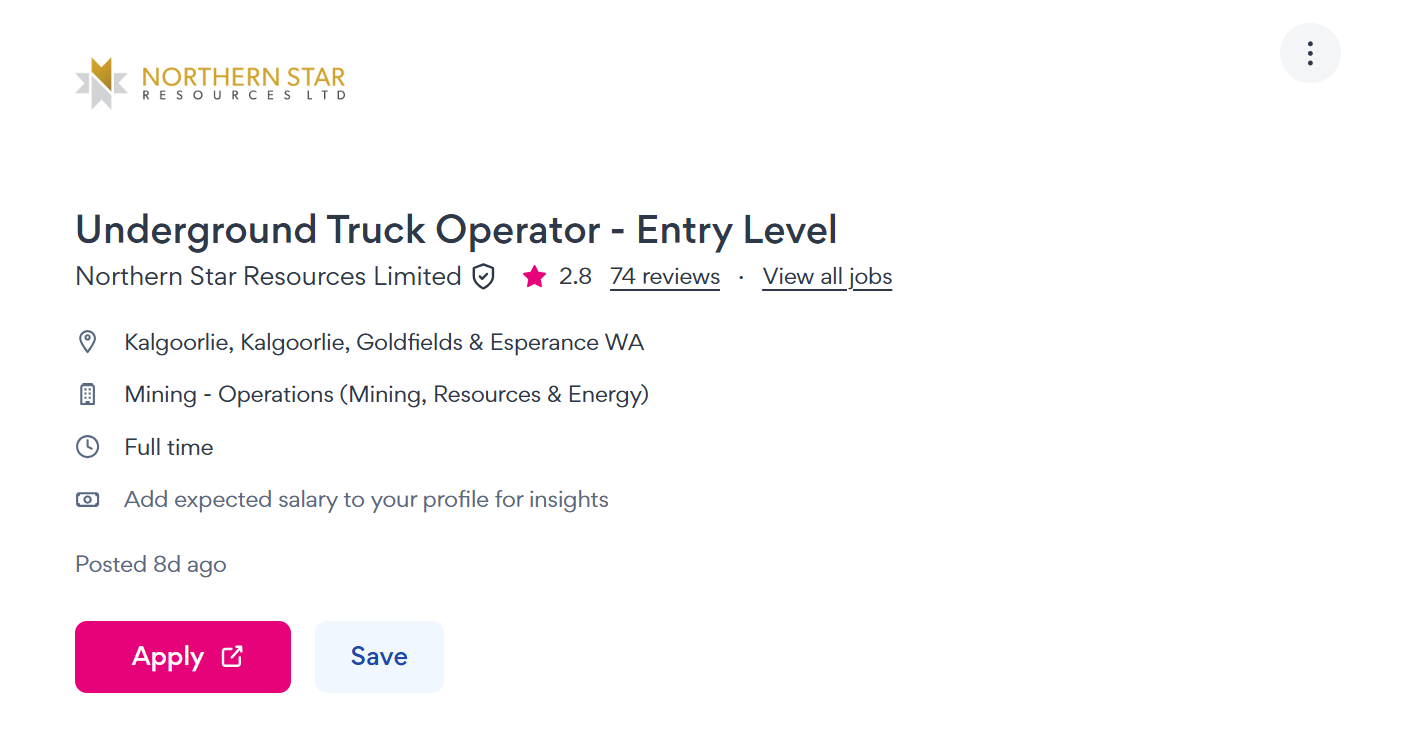
What the job is
Underground truck operators move ore and waste inside mines. Many sites offer simulator-based training and on-site operator upskilling for new entrants.
Day-to-day tasks
- Operating haul trucks in underground environments (post-training)
- Loading/unloading material and navigating haul roads safely
- Daily equipment checks and reporting faults
- Working closely with shift crews and supervisors
Real requirements
- Valid manual driver’s licence
- Over 18 and able to meet pre-employment medical and drug testing
- Good spatial awareness and strict adherence to procedures
- Local residence often required for residential roles; FIFO varies by site
Where your past experience fits
| Previous Experience | Why It Transfers |
|---|---|
| Truck driving / transport | Comfortable with driving large vehicles and road procedures |
| Machinery operation | Mechanical sympathy and basic checks routines |
| Warehouse / forklifts | Load management and safety awareness |
| No experience | Simulator and on-site training commonly provided |
Recommended tickets & courses
- White Card
- Provide First Aid
- Confined Space / Working at Heights (useful later)
- Plant tickets as career progresses
Pay & roster
Rosters are commonly 7/7 or similar, with 12-hour shifts. Operator roles include shift penalties and can quickly exceed average entry wages, depending on site and allowances.
How to apply / stand out
- Highlight any driving or machinery experience and your readiness for simulator training
- Be flexible on roster and location — local residents often preferred for residential roles
Trainer’s Insight
“Operator roles are skill-based but frequently come with training. If you’re sharp, fit and willing to learn with simulator time, you’ll progress fast.”
6. Supply Chain Operations Trainee
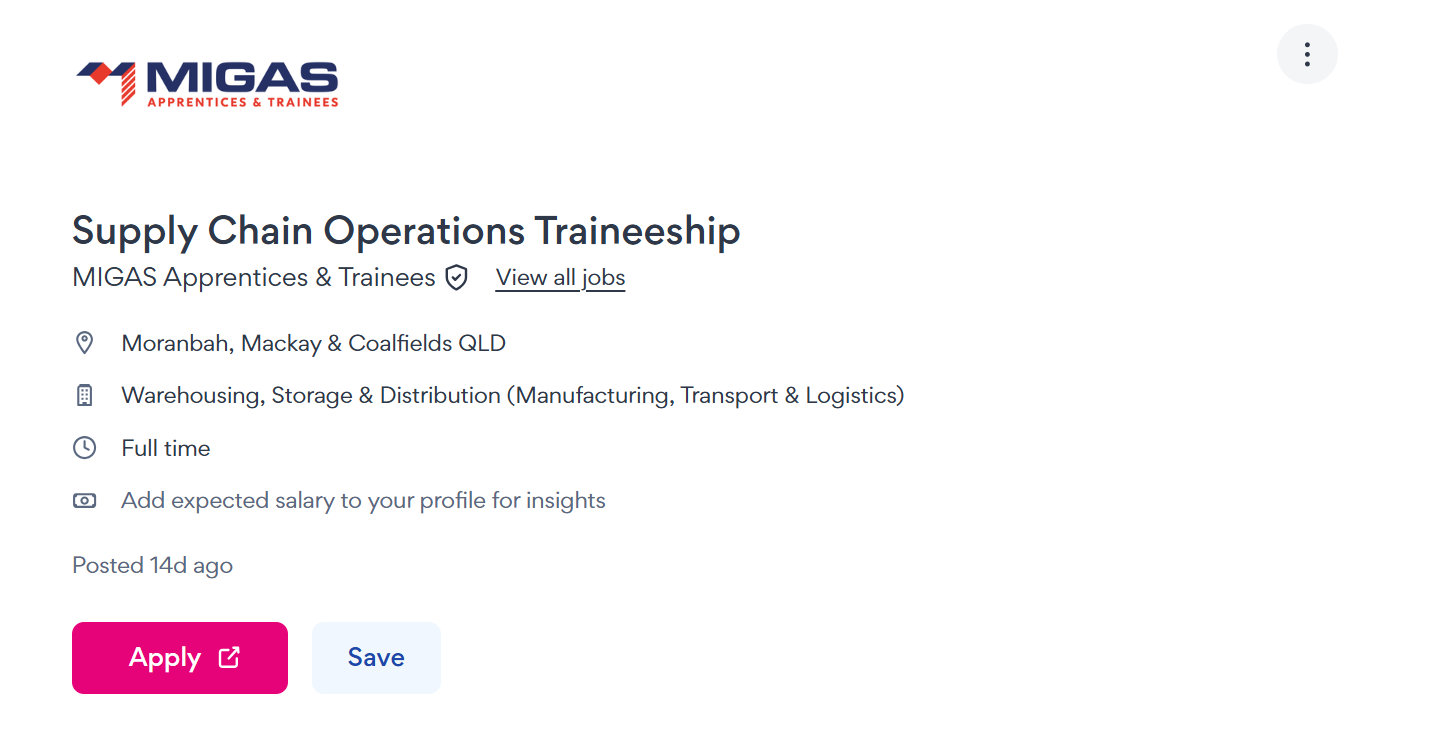
What the job is
Supply chain trainees support logistics and materials management on-site — receiving and issuing goods, stock control, and ensuring supplies keep operations moving. This role suits people from warehousing, admin or transport backgrounds.
Day-to-day tasks
- Goods receipt and issue, stock takes and bin maintenance
- Operating forklifts (if licensed) and escorting deliveries
- Housekeeping and maintaining documentation
- Following SOPs and participating in safety interactions
Real requirements
- Basic computer literacy and good communication
- Physical fitness for loading/unloading and 12-hour shifts
- Willingness to obtain Standard 11 (coal induction) and pass Coal Board Medical if required
- National police check typically required
Where your past experience fits
| Previous Experience | Why It Transfers |
|---|---|
| Warehouse / logistics | Directly relevant — stock, forklifts and documentation |
| Admin / retail stockroom | Stock control and record-keeping experience |
| Transport / delivery driving | Handling goods and schedules |
| No experience | Traineeships teach both systems and physical tasks |
Recommended tickets & courses
- White Card
- Manual Handling
- Provide First Aid
- TLI30321 Certificate III in Supply Chain Operations (part of traineeship)
Pay & roster
Typically rostered 7 on / 7 off with 12-hour shifts. Pay varies by traineeship terms but includes training allowances and clear progression to qualified roles.
How to apply / stand out
- Highlight any stock, forklift or inventory experience
- Show basic computer and record-keeping skills
- Demonstrate eagerness to complete formal traineeship training and inductions
Trainer’s Insight
“Supply chain roles are excellent for people who like structure and systems. Traineeships combine classroom and hands-on learning — a strong route into mining careers.”
7. Camp Housekeeper / Site Utility
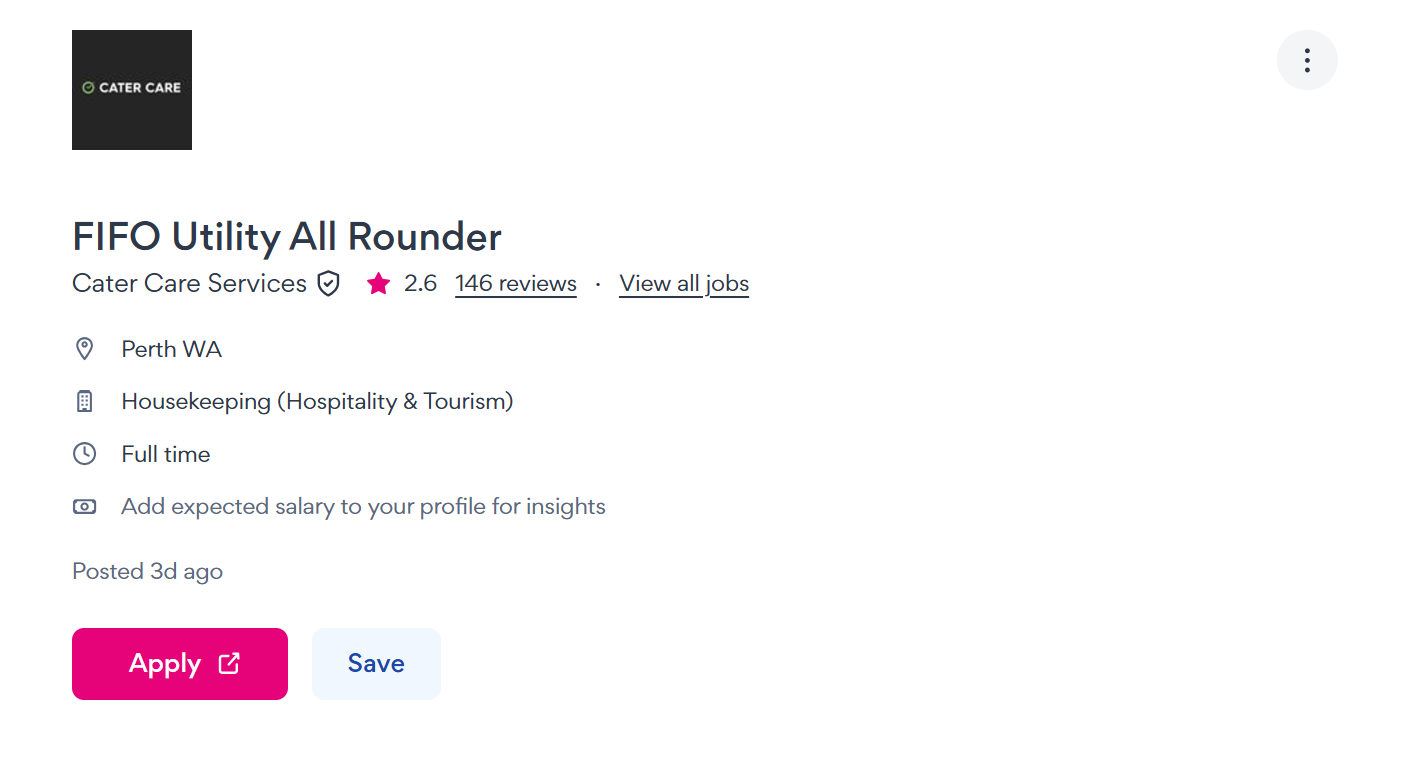
What the job is
Camp housekeepers keep FIFO accommodation and site facilities operating: cleaning, laundry, and maintaining communal areas. It’s one of the most accessible ways into FIFO work and can lead into wider site services roles.
Day-to-day tasks
- Room cleaning and turnover, laundry and common area maintenance
- Minor maintenance reporting and assisting kitchen/facilities staff
- Following site hygiene and safety protocols
- Interacting with FIFO workers professionally
Real requirements
- Attention to detail, reliability and ability to work shift rosters
- Provide First Aid sometimes preferred; basic infection control knowledge useful
- White Card may be required depending on site contractor
Where your past experience fits
| Previous Experience | Why It Transfers |
|---|---|
| Hospitality / hotel cleaning | Direct match — room cleaning and guest service |
| Retail / customer service | People skills and shift experience translate well |
| Domestic cleaning | Task-focused and detail-oriented work |
| No experience | Contractors often hire entry-level and provide induction training |
Recommended tickets & courses
- White Card (sometimes required)
- Provide First Aid
- Manual Handling
Pay & roster
Rosters mirror site schedules and include camp allowances. Housekeeping roles are regularly residential or short FIFO stints and pay includes relevant allowances and overtime where applicable.
How to apply / stand out
- Provide strong references that confirm punctuality and reliability
- Highlight hospitality or cleaning experience and ability to work rostered hours
Trainer’s Insight
“Camp housekeeping is low-barrier and gives a stable introduction to FIFO life. It’s a genuine pathway into broader site roles for people wanting to progress.”
How to Get Job-Ready (and What Courses Help You Get There)
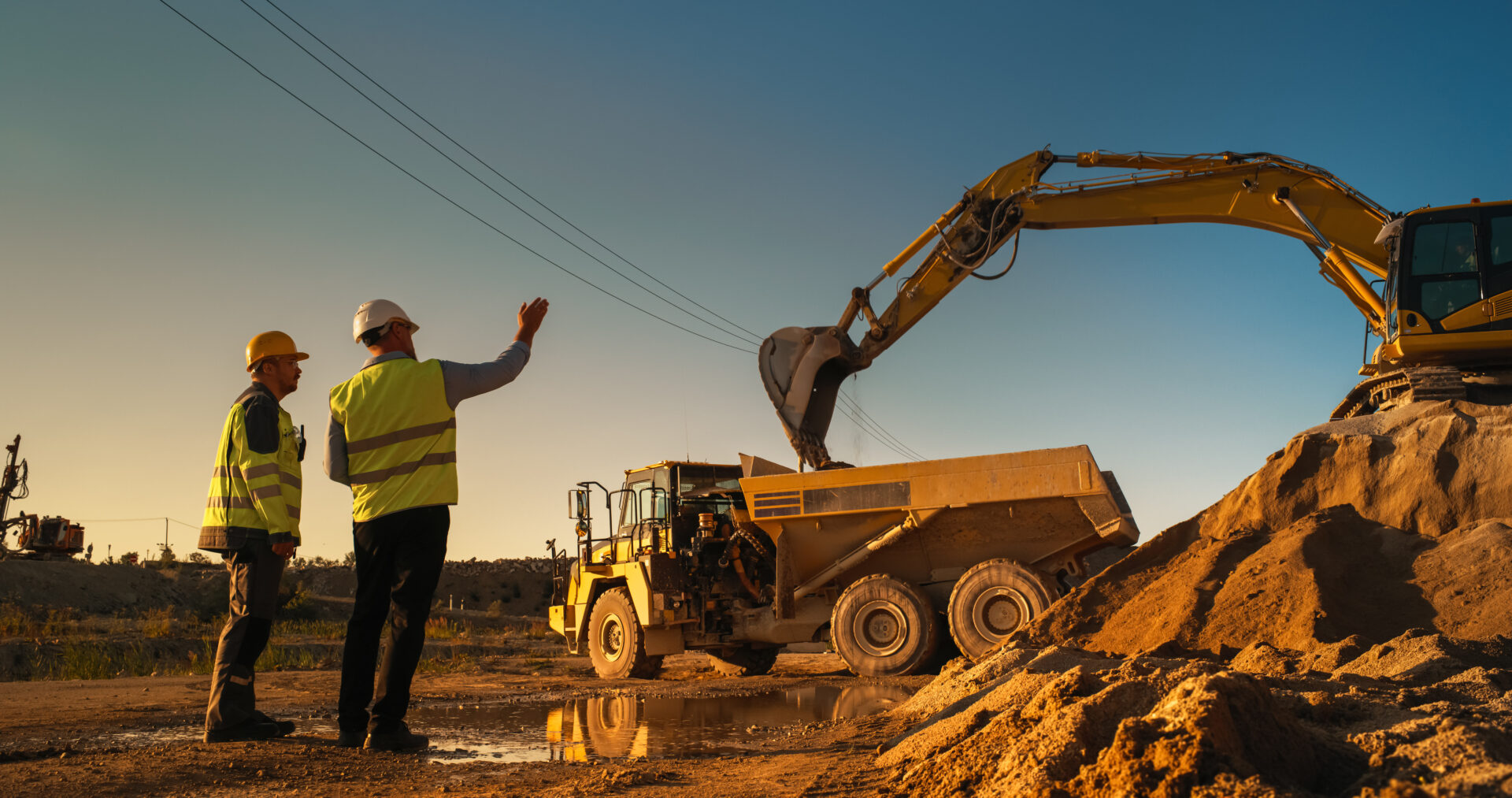
Getting started in mining isn’t about who you know — it’s about being site-ready and safety-qualified. Most entry-level mining roles list the same handful of mandatory or highly desirable tickets.
With the right short courses, you can tick those boxes fast and walk into an interview ready to work.
At National Courses (RTO 41072), we provide government-approved, face-to-face training designed to meet actual industry requirements.
Every qualification is nationally recognised, affordable, and issued on the same day you train — so you can move quickly from classroom to job site.
| Essential Course | Why It Matters | Recommended For |
|---|---|---|
| White Card | Mandatory for anyone entering a construction or mining site. Proves you understand hazard awareness, PPE, and site safety procedures. | All entry-level mining jobs |
| First Aid | Required on most remote or high-risk worksites. Shows you can respond to incidents and keep your team safe until medical help arrives. | All mining and FIFO support roles |
| Working at Heights | Essential for any role involving elevated platforms, ladders, or plant maintenance. Demonstrates you can work safely above ground level. | Conveyor Belt Splicer, Nipper, Blast Crew |
| Confined Space Entry | Required for underground and enclosed environments. Certifies that you can operate safely where ventilation, lighting, or access is restricted. | Underground Truck Operator, Driller’s Offsider |
| Manual Handling | Teaches correct lifting and handling techniques to reduce injury risk. Highly valued across all physically demanding mining jobs. | Housekeeping, Utility, Supply Chain Trainee |
| 4WD Training | Prepares you to safely operate 4WD vehicles in off-road, rugged, or remote conditions — often a requirement for FIFO and exploration teams. | Driller’s Offsider, Field Assistant, Nipper |
| Standard 11 Mining Induction | Mandatory for anyone entering a Queensland mine site. Covers core safety, emergency response, and environmental protocols. | All mining roles in QLD and interstate FIFO operations |
These short courses are designed to get you compliant fast — without wasting time or money.
Whether you’re coming from retail, construction, transport, or hospitality, these qualifications help you show employers that you’re ready for site life and committed to safety.
Trainer’s Insight
“You’d be surprised how many people we train each week who go from zero experience to landing FIFO jobs within weeks. It’s not luck — it’s about having the right tickets, a solid attitude, and a willingness to learn.”
Frequently Asked Questions (FAQ)
-
Do I need to have mining experience to get hired?
No. Many employers now prioritise attitude, reliability, and basic safety awareness over prior experience. On-the-job training and traineeships are common for beginners.
-
How long does it take to become a qualified driller or miner?
Depending on the role and employer, it typically takes 1–3 years of traineeships, combined with certification courses, to move from entry-level positions to fully qualified roles.
-
Are mining jobs suitable for people with families or dependents?
Many mining roles offer FIFO (fly-in, fly-out) or residential rosters. While pay is high, consider roster schedules and travel commitments before applying.
-
What safety precautions are in place for entry-level roles?
All reputable sites provide mandatory safety inductions, PPE (personal protective equipment), and supervision. Regular refresher courses are also required for certain roles.
-
Can I transition from mining into other industries later?
Yes. Skills like teamwork, machinery operation, safety awareness, and physical endurance are highly transferable to construction, logistics, and heavy industry roles.
-
Are there opportunities for women or diverse applicants?
Absolutely. Many mining companies actively recruit women and diverse candidates, offering mentoring programs, flexible rosters, and supportive workplace policies.
-
What additional certifications could give me an advantage?
Beyond core tickets (White Card, First Aid), certifications like Confined Space, Working at Heights, and 4WD training can make you more competitive for specific sites or roles.
Take the First Step Today
Start your career in one of Australia’s most in-demand industries with confidence.
Our practical, hands-on approach prepares you for real entry-level mining roles — from Nipper to Driller’s Offsider or Camp Housekeeper — while setting you up for long-term growth.
Gain the skills and knowledge employers value, get your foot in the door faster, and take control of a high-paying, rewarding career with real progression opportunities.
Click the link below to begin your journey today.
About National Courses
Nationally Recognised Training and Certification for a Wide Range of Industries

National Courses Pty Ltd (RTO 41072) is a trusted training provider offering short, nationally recognised courses across Australia.
We specialise in practical, job-ready training for industries like construction, civil, safety, and first aid — helping individuals and businesses stay qualified and competitive.
National Courses PTY LTD works with government programs, employers, and community organisations to deliver training that leads to real employment outcomes.



